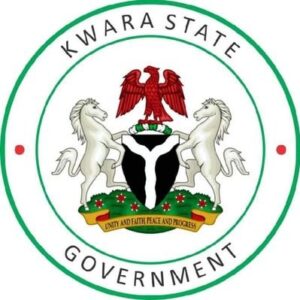MAN advises FG on measures to reduce inflation
By Omolola Dede Adeyanju
In July 2023, Nigeria experienced a surge in inflation, with the rate reaching a new 18-year high of 24.08 per cent. This marks an increase of 1.29 per cent from the previous month’s rate of 22.79 per cent, as reported by the National Bureau of Statistics (NBS). The rise in inflation was majorly driven by higher prices of food items. Over the course of a year, the inflation rate had risen by 4.44 percentage. starting from 19.64 percent in July 2022.
Specifically focusing on food, the 2023 inflation rate increased to 26.98 percent in July from 25.25 recorded in June . In comparison to July 2022, the year-on-year food inflation rate was 4.97 percentage points higher.
The Director General, Manufacturers Association of Nigeria (MAN), Segun Ajayi-Kadiri mni has revealed that the increased food prices were attributed to planting season and logistic costs as impact of fuel subsidy removal took its full course.
He said, “Notably, the most substantial price increases were observed in gas, air passenger transport, liquid fuel, vehicle spare parts, and fuels, lubricants for personal transport equipment, medical services, and road passenger transport.
“In the same vein, the core inflation also moved up from 20.06 in June to 20.47 percent in July. There was a 4.41 percent increase in the core inflation over the period of one year, from 16.06 percent in July of 2022.
“The continued surge in sub-indices of inflation show that Nigeria’s inflation is more than transient but structural in nature.
“It appears evident that the continuing inflationary pressure experienced in the country is attributable to the fallout of recent government policy measures, including removal of fuel subsidy and the unification of exchange rates. Additionally, concerns about increasing energy costs and widespread insecurity in food-producing regions is exacerbating the inflationary pressures.”
Furthermore, the DG explained that the ongoing rise in inflation erodes savings and incomes, prompting the CBN to raise the country’s benchmark interest rate to the highest level in nearly twenty years.
He enumerated, “The CBN increased the monetary policy rate in July. The apex bank’s effort was aimed at arresting the soaring inflation and defending the Naira that has continued to drop in value both at the official and parallel markets.
“The increase of MPR by 25 basis points in July brought the interest rate to 18.75 per cent. Within a span of one year, the CBN has raised the Monetary Policy Rate (MPR) by 750 basis points from its April 2022 level of 11.5 percent.”
According to the DG, the implications for the manufacturing sector as expected, are enormous, he expressed, “the current inflationary condition in Nigeria is adversely affecting the operation of the manufacturing sector, just like most other sectors of the economy. Some of the impacts of the rise in inflation on manufacturing include:
“Increase in Cost of Production: Rising inflation often leads to higher costs of raw materials, labour, and other production inputs. Manufacturers might find it more expensive to procure resources necessary for their production processes, thereby squeezing profit margins.
“Reduced Profit Margins: As costs increase due to inflation, manufacturers might struggle to pass on these cost increases to consumers in the form of higher prices. This will result in reduced profit margins, especially as it is becoming more difficult to pass the burden to the consumers as a result of income squeeze leading to price resistance.”
Also, he noted for Supply Chain Disruption that inflation is disrupting supply chains, making it difficult for manufacturers to obtain necessary materials and components.
This, according to the DG, will lead to delays in production and potentially halt operations as key supplies become scarce or unavailable. Inflation introduces a level of uncertainty in economic conditions. Manufacturers will continue to find it challenging to make long-term business plans due to unpredictable cost fluctuations, demand shifts, and overall economic instability.
He further stated, “High inflation often reduces consumers’ purchasing power. As prices rise, consumers are cutting back on discretionary spending, including manufactured goods. This leads to decreased demand for products which adversely affects manufacturers’ sales.
“Elevated inflation serves as a significant sign of underlying macroeconomic weaknesses, and neglecting to tackle the underlying causes will exacerbate constraints on economic expansion and elevate the unemployment rate within the country. It’s important to note that addressing inflation is a complex and long-term endeavour that requires a coordinated effort from various stakeholders, including the government, central bank, private sector, and civil society.”
The DG however cited a combination of recommendations, tailored to Nigeria’s specific economic circumstances, saying that they can help mitigate inflationary pressures and promote sustained economic growth.
He said, “Some of the ways that will ensure effective andconducive operations of manufacturers in the Nigerian economy includes:
“Striving towards a stable exchange rate is crucial to controlling inflation. The CBN should implement effective exchange rate policies that prevent sharp depreciation of the currency, which has continued to lead to imported inflation. Addressing the problem of free fall of Naira in both official and parallel markets by improving liquidity in I&E window;
“Employment of collaborative fiscal policy measure through budgeting and effective taxation to complement the monetary policy actions taken by CBN; increased targeted support to the agricultural sector to enhance productivity, reduce reliance on imports and stabilize food prices; formulation of policies that promote a stable and conducive business environment which can attract both local and foreign investments, leading to increased production, job creation, and ultimately, stability in prices;
”Communicate effectively with the public and stakeholders about the government’s commitment to controlling inflation. This can help manage inflation expectations, which can influence price-setting behavour; Addressing the challenges of insecurity; Deploying fiscal reforms that prioritize productivity and intensify infrastructural development to stimulate economic activity, create jobs and improve living conditions”
Also the DG added, “Implement structural reforms that enhance transparency, reduce bureaucracy and improve the ease of doing business.”




